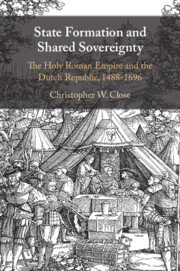
- Cited by 1
-
Cited byCrossref Citations
This Book has been cited by the following publications. This list is generated based on data provided by Crossref.
de Vivo, Filippo 2023. The composite world of early modern information. European Review of History: Revue européenne d'histoire, Vol. 30, Issue. 4, p. 645.
- Publisher:
- Cambridge University Press
- Online publication date:
- March 2021
- Print publication year:
- 2021
- Online ISBN:
- 9781108946827
- Subjects:
- Area Studies, European History after 1450, History, European Studies


